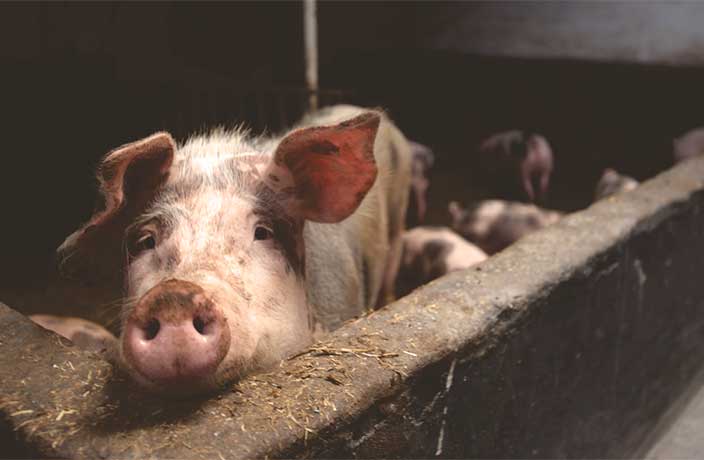 This article originally appeared on our sister website, That's Shanghai.
This article originally appeared on our sister website, That's Shanghai.
Several outbreaks of African swine fever have been reported across China this month, killing hundreds of pigs.
African swine fever is highly contagious and can be extremely fatal in pigs, but there is no vaccine to prevent the disease. The virus does not affect humans or other animals, however.
Four outbreaks of the lethal disease have already been reported in various provinces this month. They appear to have originated from China's crucial pig-sourcing and supplying provinces, Liaoning and Heilongjiang, according to state-run newspaper the Global Times.
The initial outbreak was reported in early August at a farm in Shenyang, Liaoning. Shortly afterwards, another outbreak was reported at a slaughterhouse in Zhengzhou, Henan province. The slaughterhouse had purchased 260 infected pigs from a market in Heilongjiang.
From there, the disease appears to have spread south.
On August 17, the Ministry of Agricultural and Rural Affairs confirmed another outbreak at a pig farm in Wenzhou, Zhejiang province, killing 340 pigs and infecting another 90. Wenzhou is more than 2,000 kilometers south of Shenyang, the site of the first outbreak.
Two days later, the ministry announced that 615 pigs had been infected at a farm Jiangsu province, with 88 of those pigs dying from the disease.
It's unclear exactly how far the disease has spread, according to a statement from the Ministry of Agricultural and Rural Affairs released earlier today. The statement added that there is "much uncertainty on how the situation will develop."
According to the ministry, the disease has been spreading across China's neighboring countries for a long time, and that the risk for transmission is high.
Reuters is also reporting that authorities have already culled over 20,000 pigs to stop the rapid spread of the disease along busy trade routes. Across the country, local governments have been ordered to ban transport of live hogs from areas considered to be at "high risk" for the disease. Local authorities have also been taking other emergency measures to prevent the spread of the disease, including inspection of farms and slaughterhouses in high risk areas, and reassessing live hog transportation.
Some experts have called for a nationwide ban on transporting live pigs in order to contain the disease, while others are encouraging immediate quarantine inspections around China.
Meanwhile, the United Nations Food and Agriculture Organization warned this week that the disease could spread to the Korean peninsula, Southeast Asia and other places in the region with high pork consumption.
China's pork industry has already taken a hit from the outbreaks. The Global Times reports that the number of pigs shipped from Liaoning province dropped a whopping 83 percent in mid-August. Pork prices have also been steadily increasing for the past three months.
China is home to more than half of the world's pigs, according to Bloomberg.
[Top image via Pixabay]
This article was originally published by our sister magazine That's Shanghai. For more articles like this, visit the That's Shanghai website, or follow the That's Shanghai WeChat account (ID: Thats_Shanghai).


















